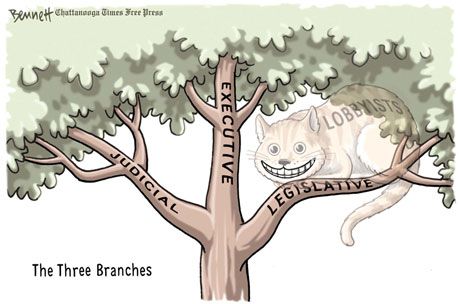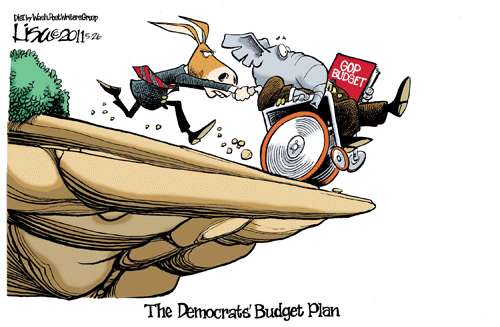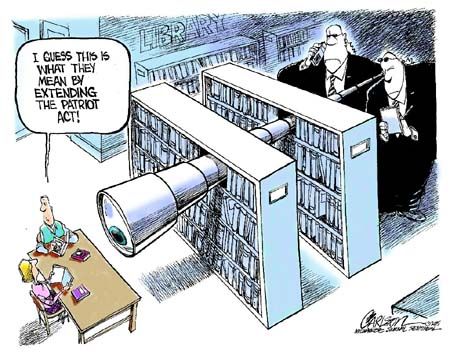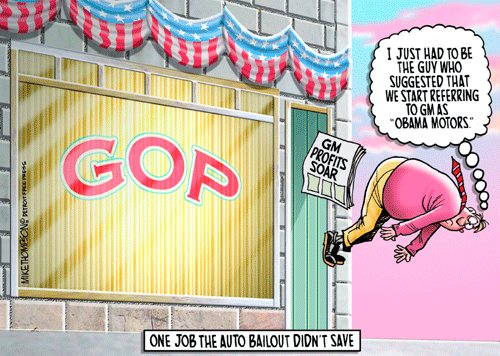“Punting the Pundits” is an Open Thread. It is a selection of editorials and opinions from around the news medium and the internet blogs. The intent is to provide a forum for your reactions and opinions, not just to the opinions presented, but to what ever you find important.
Thanks to ek hornbeck, click on the link and you can access all the past “Punting the Pundits”.
The Sunday Talking Heads:
This Week with Christiane Amanpour: Former Minnesota Gov. Tim Pawlenty and Indiana Gov. Mitch Daniels talk exclusively to Ms. Amanpour.
Face the Nation with Bob Schieffer: House Majority Leader Eric Cantor (R-VA) and Rep. Debbie Wasserman Schultz (D-FL), chairwoman of the DNC discuss jobs, Medicare and the 2012 campaign.
The Chris Matthews Show: This week’s guests are Joe Klein, TIME Columnist. Elisabeth Bumiller, The New York Times Pentagon Correspondent, Gloria Borger, CNN Senior Political Analyst and Andrew Sullivan, The Daily Beast Editor, The Dish. They will discuss: The three republicans with a real shot to beat Obama and how close is President Obama to the troops?
Meet the Press with David Gregory: Sen. Chuck Schumer (D-NY) and Republican Leader Sen. Mitch “The Human Hybrid Turtle” McConnell (R-KY) join Gregory to discuss the budget, debt ceiling and the 2012 elections.
The roundtable guests Fmr. Rep. Harold Ford, Jr. (D-TN); GOP Strategist Alex Castellanos; Washington Post Columnist Ruth Marcus and New York Times Columnist David Brooks will give their take.
State of the Union with Candy Crowley: Gen. Peter Chiarelli, vice chief of staff of the U.S. Army; Paul Rieckhoff, executive director and founder of Iraq and Afghanistan Veterans of America; Tim Tetz, legislative director for The American Legion; Sen. Patty Murray, chairwoman of the Senate Veterans’ Affairs Committee; and Dale Beatty, co-founder of Purple Heart Homes will join in discussing the troops.
Missouri Gov. Jay Nixon will update on the very latest in Joplin, MO.
Fareed Zakaris: GPS: Zakaria’s guest are Tom Friedman of the New York Times, Saudi Prince Al-Waleed and President of the Central Bank of Kansas, Thomas Hoenig.
Vladimir Putin says we’re hooligans; Brazil accuses the United States of engaging in “currency wars”; and the Chinese are, well, being their usual charming selves.
But what’s going on in the international currency scene?
I don’t know why I didn’t think to put it this way before – and I don’t know if anyone else is saying this – but what we have here is a classic example of the Mundellian impossible trinity, also known as “the trilemma,” which says that you can’t simultaneously have free movement of capital, a stable exchange rate and independent monetary policy. So, how does this apply to current issues?
Advanced countries, very much including the United States, are weighed down by the aftereffects of the 2008 financial crisis; this has led to low investment returns.
Meanwhile, emerging markets are in much better shape, so capital wants to go there.
Anthony S. Fauci: After 30 years of HIV/AIDS, real progress and much left to do
Three decades ago, the June 5, 1981, issue of Morbidity and Mortality Weekly Report (MMWR) reported on five previously healthy young gay men in Los Angeles diagnosed with pneumocystis carinii pneumonia (PCP), an infectious disease usually seen only in people with profoundly impaired immune function. As a specialist in infectious diseases and immunology, I had cared for several people with PCP whose immune systems had been weakened by cancer chemotherapy. I was puzzled about why otherwise healthy young men would acquire this infection. And why gay men? I was concerned, but mentally filed away the report as a curiosity.
One month later, the MMWR wrote about 26 cases in previously healthy gay men from Los Angeles, San Francisco and New York, who had developed PCP as well as an unusual form of cancer called Kaposi’s sarcoma. Their immune systems were severely compromised. This mysterious syndrome was acting like an infectious disease that probably was sexually transmitted. My colleagues and I never had seen anything like it. The idea that we could be dealing with a brand-new infectious microbe seemed like something for science fiction movies.
Little did we know what lay ahead.
Peter B. Bach and Robert Kocher: Why Medical School Should Be Free
Doctors are among the most richly rewarded professionals in the country. The Bureau of Labor Statistics reports that of the 15 highest-paid professions in the United States, all but two are in medicine or dentistry.
Why, then, are we proposing to make medical school free?
Huge medical school debts – doctors now graduate owing more than $155,000 on average, and 86 percent have some debt – are why so many doctors shun primary care in favor of highly paid specialties, where there are incentives to give expensive treatments and order expensive tests, an important driver of rising health care costs.
Fixing our health care system will be impossible without a larger pool of competent primary care doctors who can make sure specialists work together in the treatment of their patients – not in isolation, as they often do today – and keep track of patients as they move among settings like private residences, hospitals and nursing homes. Moreover, our population is growing and aging; the American Academy of Family Physicians has estimated a shortfall of 40,000 primary care doctors by 2020. Given the years it takes to train a doctor, we need to start now.
Tim Karr: AT&T Wants to Give You an 80s Makeover
f you were around in the 80s, you might be experiencing a horrible flashback right about now.
No, it’s not because legwarmers and spandex are in style again. It’s because AT&T, that monopoly that once lorded over your rotary phone, has resurfaced with a scheme to rule your mobile phone as well.
Back in the 80s, AT&T’s power was near absolute. That’s why antitrust authorities stepped in to break up the monopoly and protect the American people against abuse.
Now, with AT&T’s planned $39 billion takeover of T-Mobile, we’re reaching the danger point again. And this time control over one of the most vital forms of communication is at stake.
If regulators allow AT&T’s takeover of T-Mobile, we would be left with a wireless market that is far more consolidated than the markets for oil, banking, automobiles and air travel.
Eugene Robinson A Matter of Conscience
Washington – Let’s suppose the new doping allegations against cyclist Lance Armstrong are true. Should his seven Tour de France victories be marked with an asterisk, or even erased? If so, then the unofficial title of greatest-in-history would revert to Belgian cyclist Eddy Merckx, who won the Tour five times — oh, and who tested positive for banned stimulants on at least three occasions.
Plus ca change. (That’s French for “same old, same old.”)
The more I think about it, the more I am convinced that trying to police the use of performance-enhancing substances by professional athletes is pure, Sisyphean folly. I’m even more convinced that threatening to throw the accused in jail — as might happen with Armstrong, slugger Barry Bonds and pitcher Roger Clemens, and did happen with sprinter Marion Jones — is a gross misuse of criminal statutes intended to sanction actual crimes.



 “Punting the Pundits” is an Open Thread. It is a selection of editorials and opinions from around the news medium and the internet blogs. The intent is to provide a forum for your reactions and opinions, not just to the opinions presented, but to what ever you find important.
“Punting the Pundits” is an Open Thread. It is a selection of editorials and opinions from around the news medium and the internet blogs. The intent is to provide a forum for your reactions and opinions, not just to the opinions presented, but to what ever you find important. 



Recent Comments